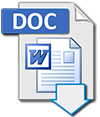Analysis of Implementation Total Quality Management at Educational Institutions in Indonesia
DOI:
https://doi.org/10.29240/jsmp.v5i1.2728Keywords:
Eductional Management, Total Quality Management, IndonesiaAbstract
The implementation of total quality management is applied to every educational institution as an effort to improve the quality of education. In this case, it is important to carry out management functions in each educational institution. This article discusses the implementation of total quality management in educational institutions to seek to improve the quality of education in achieving a quality standard in education. Every educational institution should show better quality and be able to compete. This is intended so that educational institutions continue to gain the trust of the public and stakeholders. To continue to get this, it must be improved continuously, both physically and non-physically. So as to make a quality educational institution and guaranteed quality. There are several main things that need to be considered in implementing total quality management in the world of education, namely: continuous quality improvement; determine quality standards, cultural change; changes in the organization; and maintain relationships with other agencies and customers and evaluate the system if anything is not appropriate
Downloads
References
Abu-Duhou, Ibtasam., (2002). School Based Mangement, Manajemen Berbasis Sekolah, Jakarta: Logos.
Bajaj, S., Garg, R., & Sethi, M. (2018). Total quality management: a critical literature review using Pareto analysis. International Journal of Productivity and Performance Management.
Fatah, Nanang., (2001). Landasan Manajemen Pendidikan, Bandung: Remaja Rosdakarya.
Fathurrochman, I., & Apriani, E. (2017). Pendidikan Karakter Prespektif Pendidikan Islam dalam Upaya Deradikalisasi Paham Radikal. Potensia: Jurnal Kependidikan Islam, 3(1), 122.
Fathurrochman, I., Hariani, D., Hamengkubuwono, H., Arsil, A., Muhammad, A., & Ristianti, D. H. (2020). The Development of Student Academic Administration Services in Higher Education. International Journal of Psychosocial Rehabilitation, 24(8), 4764-4771.
Fathurrochman, I., Ristianti, D. H., & bin Mohamed Arif, M. A. S. (2019). Revitalization of Islamic Boarding School Management to Foster the Spirit of Islamic Moderation in Indonesia. Jurnal Pendidikan Islam, 8(2), 239-258.
Hardjosoedarmo, S.(2004). Total Quality Manajemen, Yogyakarta: Penerbit Andi,
Ismail, F. (2018). Implementasi total quality management (TQM) di lembaga pendidikan. Jurnal Ilmiah Iqra', 10(2).
Mulyasa, E., (2007). Menjadi Kepala Sekolah Profesional, Cet. 9, Bandung: Remaja Rosdakarya.
Munizu, M. (2010). Praktik Total Quality Management (TQM) Dan Pengaruhnya Terhadap Kinerja Karyawan (Studi Pada PT. Telkom Tbk. Cabang Makassar). Jurnal Manajemen dan Kewirausahaan (Journal of Management and Entrepreneurship), 12(2), 185-194.
Nasution, M.N. (2005). Manajemen Mutu Terpadu, Bogor: Ghalia IKAPI.
Prabowo, S. (2012). Total Quality Management (TQM) dalam Pendidikan. Jurnal Sosial Humaniora (JSH), 5(1), 72-77.
Prawirosentono, S. (2007). Filosofi Baru tentang Manajemen Mutu Terpadu Abad 21, Jakarta: Bumi Aksara.
Qomar, M. (2002). Kesadaran Pendidikan; Sebuah Penentu Keberhasilan Pendidikan, Yogyakarta: Arruzz Media.
Ristianti, D. H., & Fathurrochman, I. (2020). Penilaian Konseling Kelompok. Deepublish.
Rivai, V, (2009). Education Management; Analisis Teori dan Praktik, Jakarta: Raja Grafindo Persada.
Sallis, E. (2006). Total Quality Management in Education, Manajemen Mutu Pendidikan Jogjakarta: IRCiSoD.
Sfreddo, L. S., Vieira, G. B. B., Vidor, G., & Santos, C. H. S. (2021). ISO 9001 based quality management systems and organisational performance: a systematic literature review. Total Quality Management & Business Excellence, 32(3-4), 389-409.
Sholihah, T., Riadi, I., & Atanjuani, E. S. (2020). The conceptual foundation for implementation of the Higher Education Quality Assurance System (HEQAS) at UIN Malang Indonesia. PalArch's Journal of Archaeology of Egypt/Egyptology, 17(4), 2346-2362.
Supriyanto, A. (2011). Implementasi total quality management dalam sistem manajemen mutu pembelajaran di institusi pendidikan. Jurnal Cakrawala Pendidikan, 1(1).
Sureshchandar, G. S., Rajendran, C., & Anantharaman, R. N. (2001). A conceptual model for total quality management in service organizations. Total quality management, 12(3), 343-363.
Sutarto, S., Sari, D. P., & Fathurrochman, I. (2020). Teacher strategies in online learning to increase students’ interest in learning during COVID-19 pandemic. Jurnal Konseling dan Pendidikan, 8(3), 129-137.
Tim Gama Jakarta, Kamus Saku Ilmiah Populer, Jakarta: Gama Press, 2010.
Tjiptono, F. dan Anastasia Diana, (2003). Total Quality Management, Yogyakarta: Andi Offset.
Waldan, R. (2020). Total Quality Management dalam Perspektif Islam. In ICRHD: Journal of Internantional Conference on Religion, Humanity and Development (Vol. 1, No. 1, pp. 259-268).












 This work is licensed under a
This work is licensed under a 